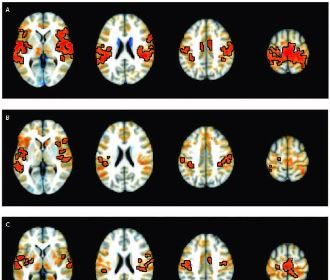Student Mental Health Surveys Forecast College Retention Troubles

WASHINGTON — Perhaps the highest percentage to date — 76% — of undergraduate college students surveyed in a 2021 Gallup poll suggested that they have considered dropping out of college due to mental health concerns.
This statistic was recently shared during a conversation of experts working in advocacy and on the ground to address students’ mental health crises, convened by the D.C.-based public policy think tank Third Way.
“The time to address mental health on campus is right now,” Zainab Okolo, a strategy officer at the Lumina Foundation focusing on student success, said.
Okolo, who referenced students’ mental health as a “sleeping giant,” said that the COVID-19 health emergency exacerbated the problem, but was not the root cause. She noticed that stress has had an impact on students’ success as well as college retention for some time.
In 2019, an American Council on Education study found that one in three students “meet the criteria for a clinically significant mental health problem.” And years earlier, a 2012 study by the National Alliance of Mental Illness found that about 64% of college students with mental health issues drop out.
While Okolo said the giant might not “truly realize how big it is … The giant is fully awake, and it’s disoriented, and it is loud.”
“Mental health has finally met its moment,” she said. “[And] if we choose the business as usual approach … we will then have to make more considerations for the increased enrollment crisis.”
Along with others, Okolo called for more attention to the mental health crisis as well as strategy and support for coordinated solutions.
“The pandemic shifted everyone’s mental health. Students are not alone in this,” Jihad Aziz, director at Virginia Commonwealth University’s Counseling Center, said.
“Anxiety, depression, and stress have always been top concerns in counseling centers, but acuity exists,” he suggested, saying that the pandemic added a new layer of academic stress as well as increased isolation and loneliness.
And while students have shown an increased ability to identify mental health issues with their peers and themselves and use language to self-diagnose and share their experiences, social anxiety remains a top issue.
“Our students … come to college ready to learn about themselves but feel so disconnected from each other,” Erika Coates, a licensed clinical social worker at Virginia Tech’s Cook Counseling Center, said. “Students struggle to move out of the web of diagnostic issues to make meaningful connections.”
“So, how do we look at reentry [post COVID-19]?” Aziz asked, likening the effort to that of astronauts and the incarcerated rejoining society. “Building rapport is an essential component of reintegration.”
According to John MacPhee, CEO of the Jed Foundation (JED) which partners with hundreds of colleges to focus on protecting emotional health and suicide prevention, strategies must include reducing stigma and barriers and taking action to notice if a student is struggling as well as the development of life skills resilience and the creation of a sense of belonging.
“Some degree of stress or sadness is within the range of being human … but we are seeing so many students who are in extremes of that,” Coates said.
“We need to catch up with how we talk about mental health,” Okolo added. “The more that we have a narrative about reaching out for help, the more we’ll have [an idea of where to put our time and resources] to guide students to completion.”
Kate can be reached at [email protected]
This article has been corrected to include the correct title of John MacPhee of the Jed Foundation.
























